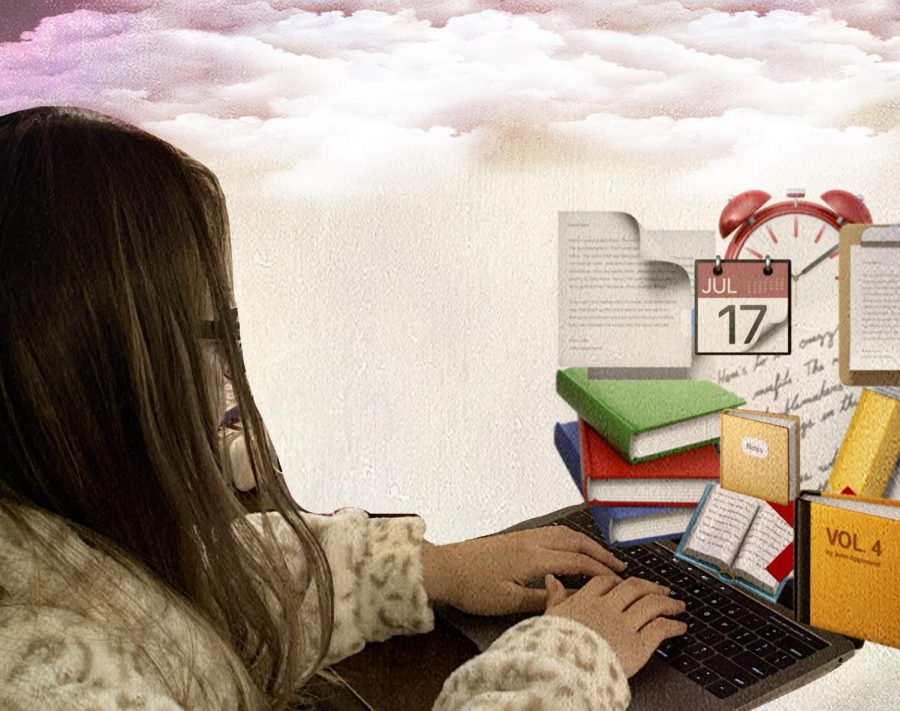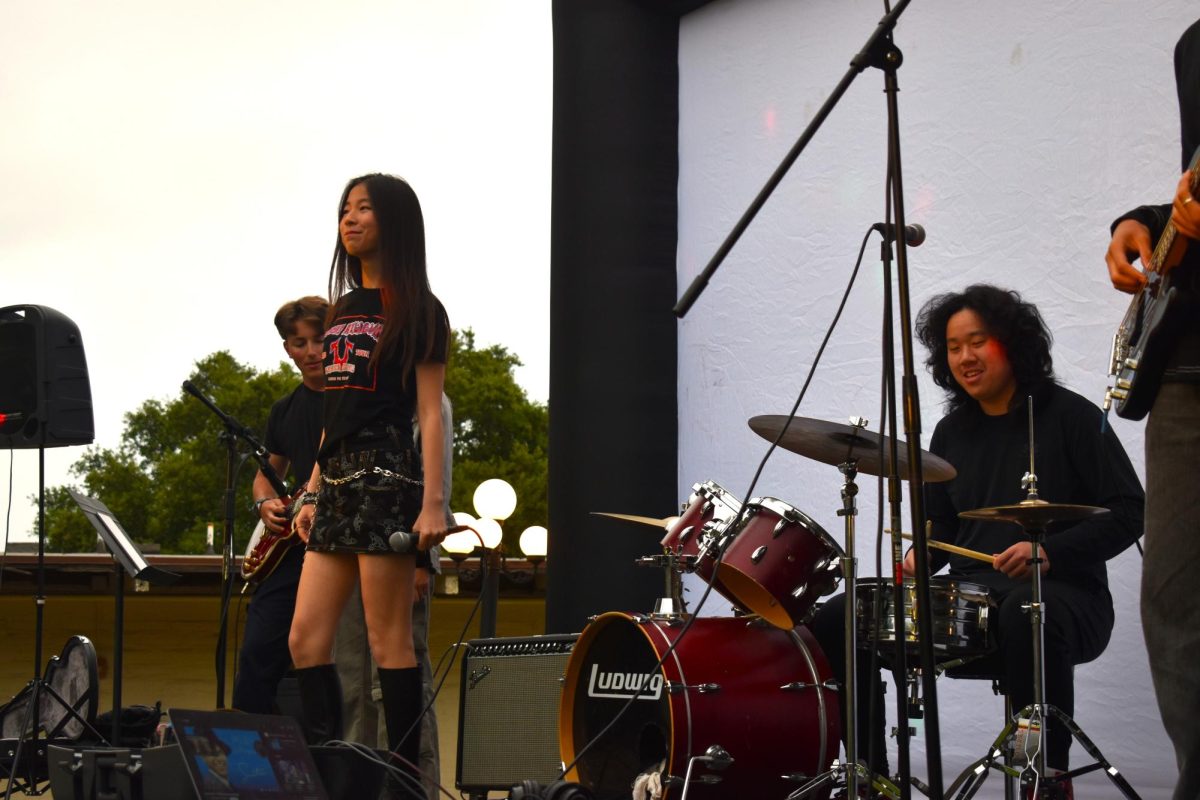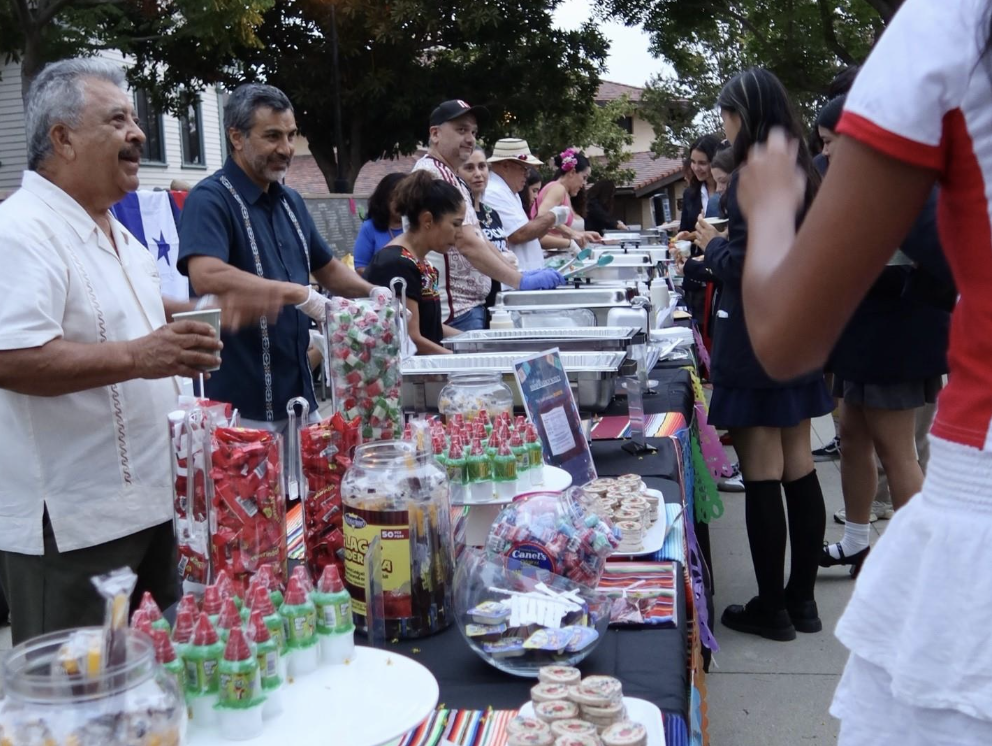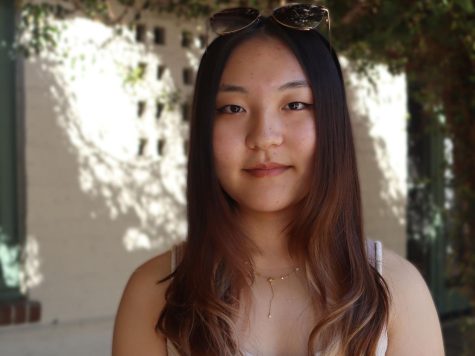As the era of virtual learning approaches the one-year mark, students and teachers alike can relate to the challenges that have come up during this time period; the drastic switch in environment from school to home has greatly affected everyone. Along with that, teachers have had to reevaluate how to teach in a way that is effective and appropriate within the circumstances.
Given these adjustments, have students actually been able to learn?
This question prompts us to reevaluate what learning truly means. One may think that learning is memorization and testing your knowledge through a series of repetitive assessments. Or is it perhaps more instinctual, where we learn through firsthand experiences and interactions with the world? Maybe the answer lies somewhere in between, and it is still interpreted and debated between students and educators alike.
Michael Hoe (‘04), Director of Studies, is an educational leader charged with running the academic program at Webb. To him, learning does not just happen on the screen, but rather outside the online environment. He addressed the idea that students think learning happens through memorization, but he explains that it actually happens through application.
“Learning happens through application of the skill it and working through it,” Mr. Hoe said. “Learning, is again, way more than content. As students adapt and independently navigate through the school year, organization, prioritization, [and] making a schedule are all different opportunities to grow and learn that is not just limited to content.”
The Webb Schools takes pride in its sense of community and group participation among students. The pandemic has made it significantly harder to engage with each other; students cannot communicate as well as before with not only their peers, but their teachers as well. The casual quips and chats between classes or quick meetups at the dining hall are now just a memory. The challenge for the teachers is to make the most out of the situation and provide a way for students to be actively engaged.
This has proven to be one of the most notable difficulties among the teachers. It is challenging to make the current material relevant and interesting for the students.
“There are many challenges, but for me, the biggest challenge has been altering our content and skill curriculum and altering our expectations to be realistic,” said Jessica Fisher, co-chair of the humanities department.
This is the biggest challenge among teachers. First–year Integrated Physics and Chemistry teacher Brian Kays speaks out on the challenge of creating student engagement as an educator. Studies have shown that teachers have significant impact on student motivation and participation, in which engagement creates a lively classroom environment where both parties can thrive.
“[It is challenging] to find ways to engage students with the materials that is relevant and interesting,” Mr. Kays said. “Under the circumstances we are in, I think it has been pretty good in terms of how students are learning, but we are always trying to improve the process.”
Motivating students and fostering engagement can be admittedly tricky, especially now with limited time and resources. Howie Kalter, mathematics department faculty, expresses this challenge within his classes.
“[It is most difficult to] try and find ways for students to engage,” Mr. Kalter said. “It’s inherently a little difficult because students feel less comfortable speaking up in Zoom classes versus in-person classes.”
The energy of in-person classrooms is unmatched to that of Zoom classrooms, but online learning is not completely devoid of opportunities to work with each other, as breakout rooms, collaborative Wednesdays, and group projects are chances for students themselves to take initiative and study with each other.
“They are definitely participating with each other,” Mrs. Fisher said. “Collaborative Wednesdays and breakout rooms actually seem to create better engagement opportunities, and I do feel there is still group work being done.”
“Students are great at jumping in and participating, and I do think we are doing a pretty good job; we are doing as well as we can,” Mr. Hoe said.
It is one thing for students to cooperate in humanities classes where many discussions take place, but it is also important for students to work together in math classes, which are taught through Problem Based Learning (PBL), a group-dependent method of learning. In addition, the math department does seem to feel a drawback from the students during class time.
“I think that in the breakout rooms, there is a little less group work being done behind the screen, which doesn’t really happen in the classroom,” Mr. Kalter said.
However, the shortened class times seem to be a benefit for math classes.
“I do think students are still learning and engaging well,” Mr. Kalter said. “Due to the online format, we had to shorten class times. When we shortened the classes last spring, it was easier for students to be engaged during the shorter class times.”
Mr. Hoe also brings up the positive aspects of the shorter school days.
“The benefits are there is a little more flexibility,” Mr. Hoe said. “You do not necessarily need to be at home, and especially for boarders, who are with their families. At Webb, [the schedule] is so busy and jam packed, and now, kids can explore other interest that are not centered at Webb.”
Most teachers are also concerned on the mental health aspect of the students, always adapting to feedback and adjusting the course to fit the situation we are in.
“Because we have less time, we do not want to overburden students,” Mrs. Fisher said. “The choices of what to drop and keep is very challenging especially when thinking about long time impact. We want students to take care of mental health.”
Mr. Kays also adds on to the challenge of mental health.
“My biggest concerns are beyond content, but more about mental wellbeing among students and the connections they have outside of school,” Mr. Kays said.
With all the challenges online learning presents and the ones we must battle, it may be hard to feel like one is growing and developing in a regressing world. Therefore, emphasizing learning as a process that can happen outside of school is important.
“Webb is super resilient; the pandemic has highlighted strengths, and we are going to have hard days but being with each other and the relationships we have is the most important, whether it being on Zoom or in person,” Mr. Hoe said.
Webb is known to create a robust learning environment for its students. After all, Webb’s mission statement is to “provide an exemplary learning community that nurtures and inspires boys and girls to become men and women who: think boldly, mindfully, and creatively; act with honor and moral courage; lead with distinction; serve with a generous spirit.” Even if the school year has moved online, we have simply been presented a new way to learn, adapt, and continue to pursue other possibilities we may have never thought about.
The world may have come to a halt these past few months, but as Webb students, we must remember to pursue not only academic success, but passions outside of school. There are more experiences to explore that are far more valuable than a letter grade. Learning is distinct for everybody, just like how everyone is unique. We, as Webb, must remember this as we continue to learn in this ever-changing world.















